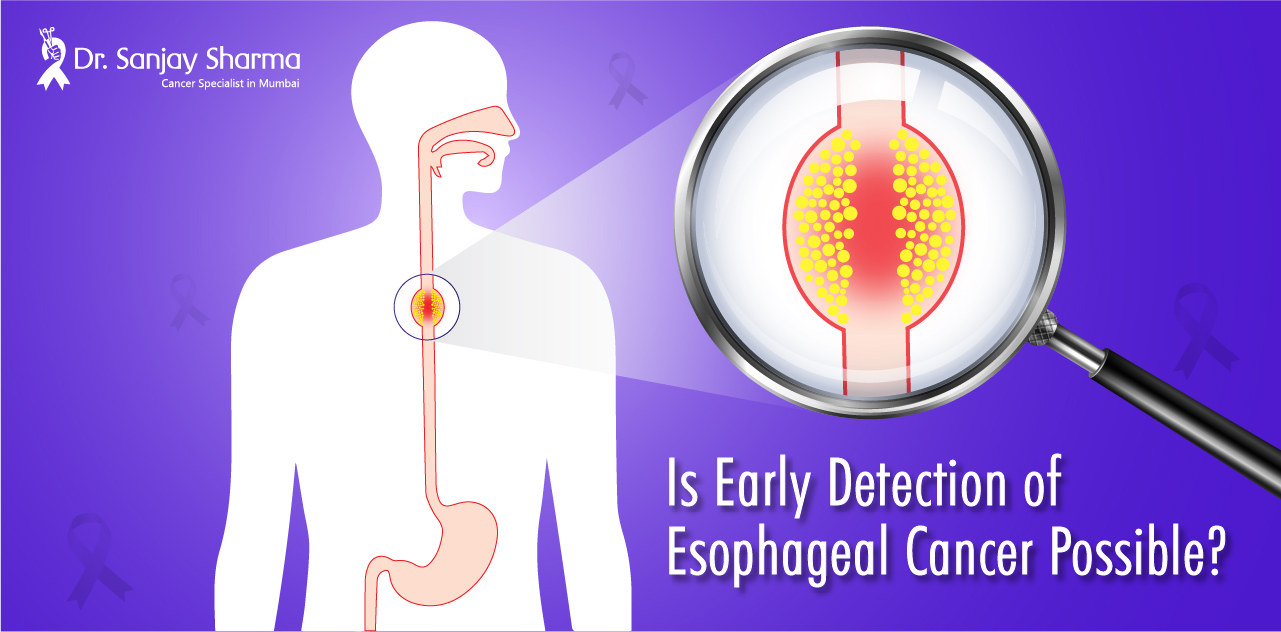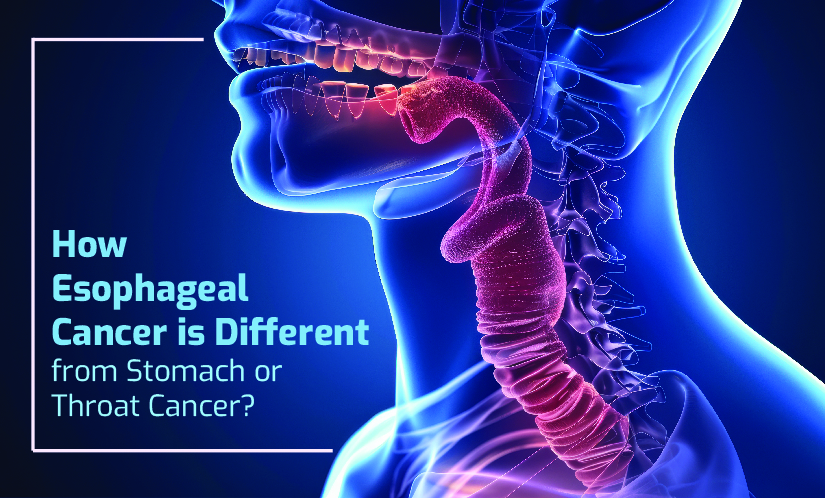
Can esophageal cancer be detected early? | Dr. Sanjay Sharma
Esophageal cancer is common cancer in India with a poor prognosis. The main reason for its poor prognosis is the fact that most of these tumors are asymptomatic and go unnoticed until they have spread outside the esophageal wall and are unresectable. In order to significantly lower the mortality rate from the disease, the successful methods for detecting and treating more cases of disease at their earliest, most treatable phases are needed. Thus, awareness of some minor symptoms is as retrosternal discomfort, and mild difficulty in swallowing after solid meals, especially in people who eat betel nut & tobacco more so in endemic areas like Assam, North East, Mallabar area, Hubli Dharwad, Belgam (South India), Jabalpur, Panna (Central India).
The 5-year oral survival rates for esophageal cancer.
These statistics are based on patients who are diagnosed with esophageal cancer between 2011 and 2017.
The survival rate of esophageal cancer is higher at earlier stages. Let efforts be made with a vigorous approach for awareness of the early symptoms and studies to determine whether or not esophageal cancer can be detected early in such a group of patients to save their life.
Is Early Detection of Esophageal Cancer Possible?
In persons who don't have any signs of mass of the disease, screening is the procedure of checking pre-cancerous lesions and early cancer is not cost-effective anywhere. Thus, in India, there is no professional organization that recommends routine esophageal cancer screening for the general public. However, people with a high risk of esophageal cancer, such as those with Barrett's esophagus, are generally closely monitored in order to detect early malignancies.
Barrett's esophagus
Barrett’s Esophagus is less common in India, though the incidence is now about 15% of all Esophageal Cancer patients. Barrett’s Esophagus is caused by reflux esophagitis mostly in obese patients, smokers, and high liquor-consuming people.
Commonly specialists urge that persons at high risk of esophageal cancer, such as those with Barrett's esophagus, undergo regular upper endoscopies. The doctor uses an endoscope, a flexible lighted tube, to examine the inside of the esophagus during this test. Small samples of tissue (biopsies) may be taken from the abnormal area to be examined for dysplasia (pre-cancer cells) or cancer cells.
Most doctors suggest testing more frequently if there is high-grade dysplasia, this testing is repeated even more frequently. High-grade dysplasia can be treated surgically by removing the affected portion of the Esophagus or endoscopic mucosal resection (EMR), photodynamic treatment (PDT), or radiofrequency ablation (RFA). These patients' outcomes have improved significantly after treatment as per literature reports.
Hereditary syndromes:
A hereditary condition known as a familial disease is not very common in Esophageal Cancer but one that is passed down from one generation to the next. People with hereditary syndromes are at higher risk of developing esophageal cancer due to eating betel nuts & areca nuts and these individuals’ families may also require routine endoscopies to check for cancer or pre-cancer.


